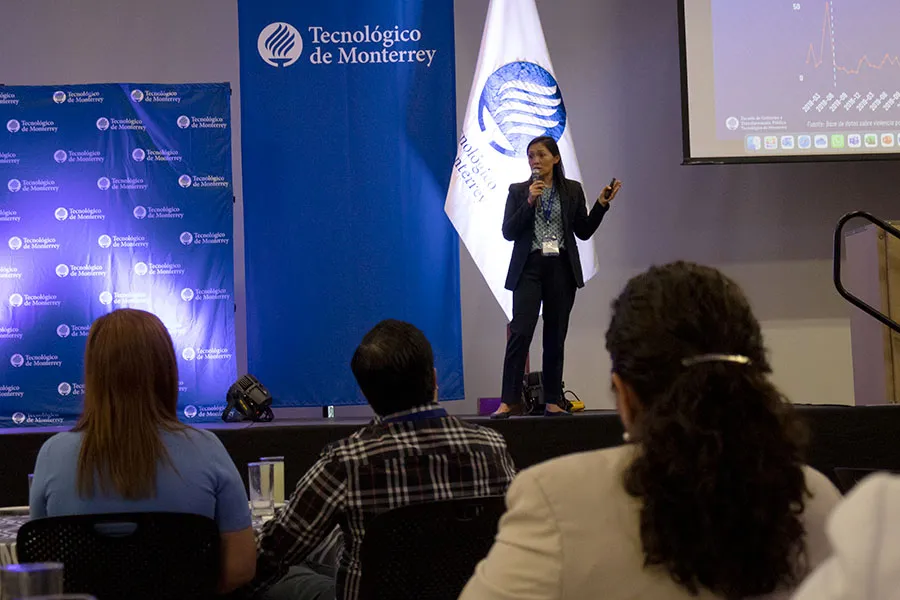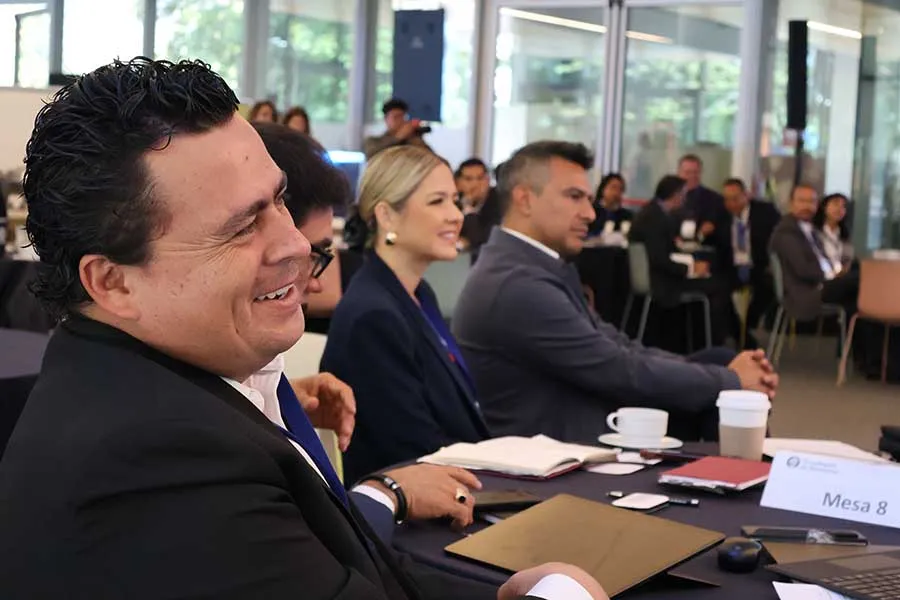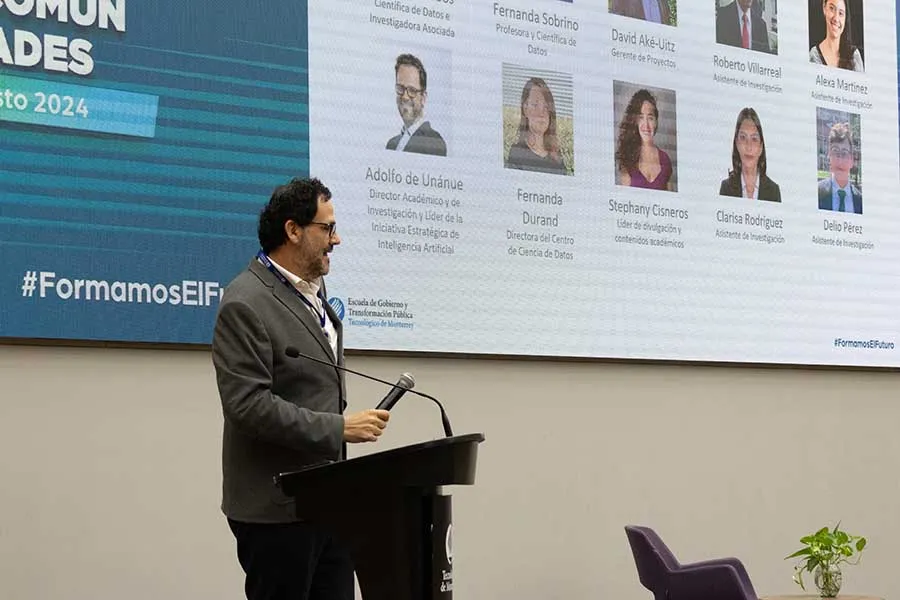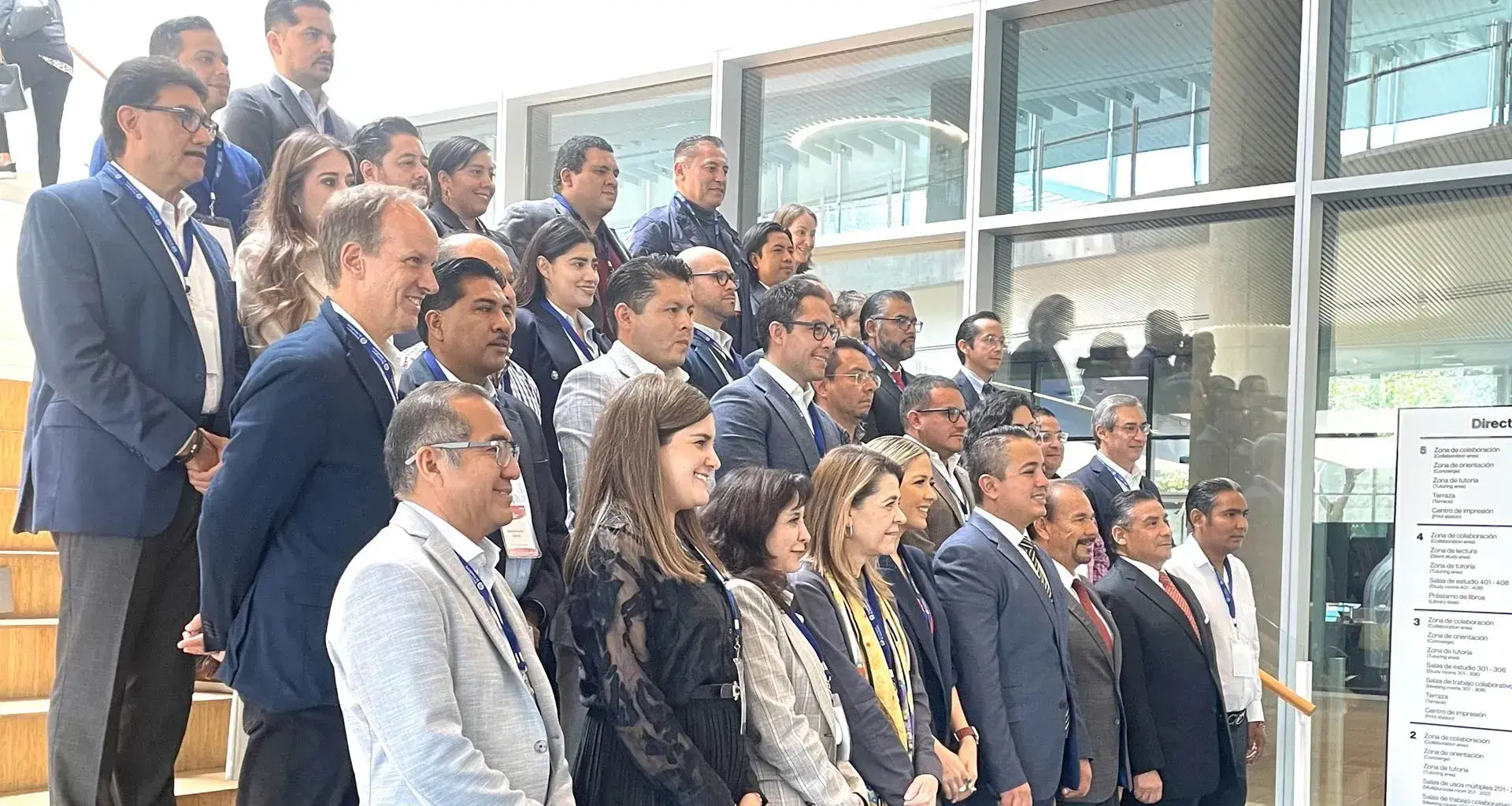In order to provide better tools for decision-making, Tec de Monterrey’s School of Government and Public Transformation held the Mayors Seminar entitled “Best Practices for the Common Wellbeing of our Cities.”
The Mexico City, Guadalajara, and Monterrey campuses were the three venues for the seminar, held on August 26, 28, and 30.
During the seminar, talks were given on topics such as artificial intelligence (AI), urban planning, citizen security,and high-impact productive development policies.
David Garza, the Tec’s Rector and Executive President, welcomed the officials who attended one of these venues.
“Your presence reflects your commitment to your communities. The role you play as leaders is crucial to building a more prosperous future for society in each of your cities,” said Garza.

“It’s essential to focus on improving public service, efficiency in the use of resources, and strengthening the institutional capacities of our local governments,” he added.
The rector said that Tec de Monterrey has developed tools and technologies that will allow mayors to make informed and creative decisions to face the challenges facing each of their cities.
“This is the first edition to be held in person at three campuses with topics the School of Government and Public Transformation has a lot of experience and strength in,” said Pablo de la Peña, director of this school on Monterrey campus.
“What we’re interested in is providing for the creation of public value and the wellbeing of the community,” he added.
“We’re interested in providing for the creation of public value and the wellbeing of the community.” – Pablo de la Peña
AI and data use in municipal administration
The correct use of data can provide solutions to complex problems, said Fernanda Sobrino, professor and researcher at the School of Government and Public Transformation on Mexico City campus.
“Faced with a problem that can be solved through data science or artificial intelligence, it’s necessary to determine whether the data is relevant and sufficient to do so, protect the data, and avoid biases in the algorithm,” she said.
She presented the types of AI that can be used today: learning algorithms, machine learning, reinforcement learning, deep learning, natural language processing, and Generative AI.

She also explained that problems in society can be solved through three criteria:
- Impact: Is the problem we are solving real and important, and does it have social impact?
- Solvable: Do the data play a role in solving the problem?
- Actionable: Does the government prioritize the problem, does it have a track record of wanting to solve it, and is it committed to allocating resources to it?
Urban planning
Roberto Ponce, a Tec professor who holds a PhD in urban information systems from the Massachusetts Institute of Technology (MIT), gave a talk on urban planning and how to use data science.
He presented projects that employ a quantitative approach and data science to understand the complexity of citiesand urban systems, as well as evaluate improvement actions in aspects such as walkability and the use of public space.
Currently, Ponce and his research group, along with collaborators such as the University of Toronto, Mobility Network, and the FEMSA Foundation, are conducting an analysis of public space in the city of Monterrey
READ MORE:
This analysis aims to visualize and simulate different scenarios related to the transportation system, road congestion, and carbon emissions.
The ultimate goal of his work is to generate urban solutions that influence public dialogue and contribute to the development of policies that promote more sustainable, humane, and prosperous cities.

High-impact productive development policies
Fernando Gómez, who holds a PhD in public policy from Tec de Monterrey, spoke about economic development in municipalities.
“Economic growth unfolds at a very different pace depending on the region, not only between regions but also between municipalities.
“The richest municipality has a GDP 8.2 times higher than that of the poorest municipality. Economic growth has to do with productivity, how to do more with less, and this growth is related to technology,” said the specialist.
He also explained that it is difficult to reverse economic lag because technology does not reach places where it is not used.
“For example, (automotive company) KIA came to Nuevo León because it has a productive ecosystem. As a state, it has economic activities similar to those of companies such as KIA.
“Industries aren’t going to want to set up in places that are lagging behind because they have no incentives to do so. That’s where governments with productive development policies (PDP) come in,” he added.
During the talk given in the Main Hall of the Rector’s Building on Monterrey campus, Gómez said that each municipality has its own needs and that public policies must be adapted to these. He shared three ideas in this regard.
“The role you play as leaders is crucial to building a more prosperous future for society.” – David Garza
The first idea is that reforms, investments, and public policies in general do not have the same impact everywhere; each region needs to create its own adapted policies.
“Policies are going to have different results throughout the region. We can’t talk about general policies. We need to have a good understanding of local productive capacities in order to design productive interventions.”
The second idea is that not all economic activities are equally likely to flourish everywhere.
“Technology is the source for raising productivity. By improving technology, we can be more efficient and productive. Regions must diversify with adjacent assets that require productive capacities similar to those that already exist.”
The third idea is that research has the potential to prioritize and focus public interventions to maximize the likelihood of success.
“The more technological development an industry has, the more viable its growth becomes. Prioritize using existing resources and look to enter adjacent industries in the long term,” he said.
With information from Susan Irais, Ana Fernanda Martínez, Ana Carolina Contreras, Domenica Segovia, Rebeca Ruiz.
Photos: Ana Fernanda Martínez, Ana Karen Becerril, Domenica Segovia, Anya Barrera, Ana Carolina Contreras, Julio Chavoya
ALSO READ:





